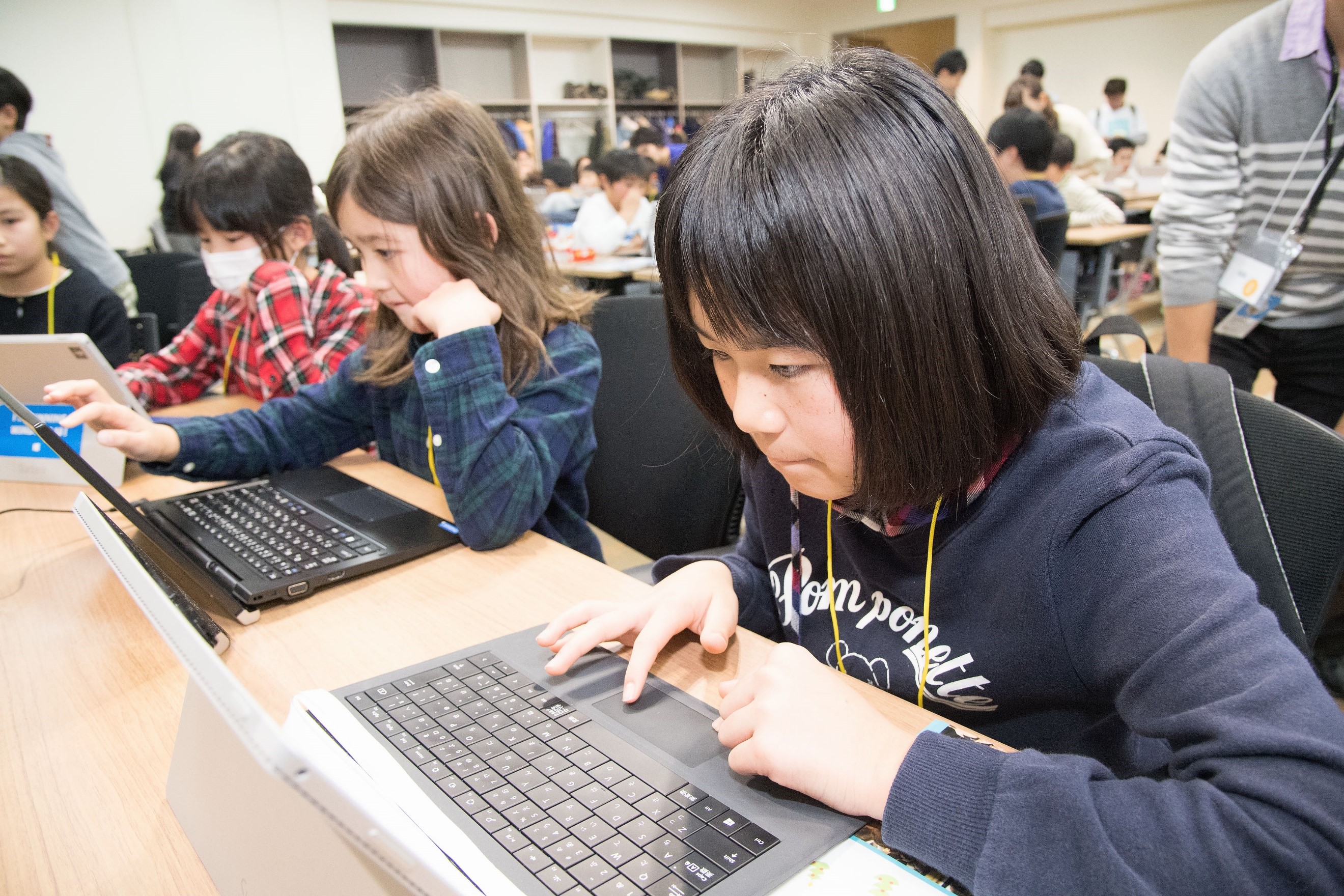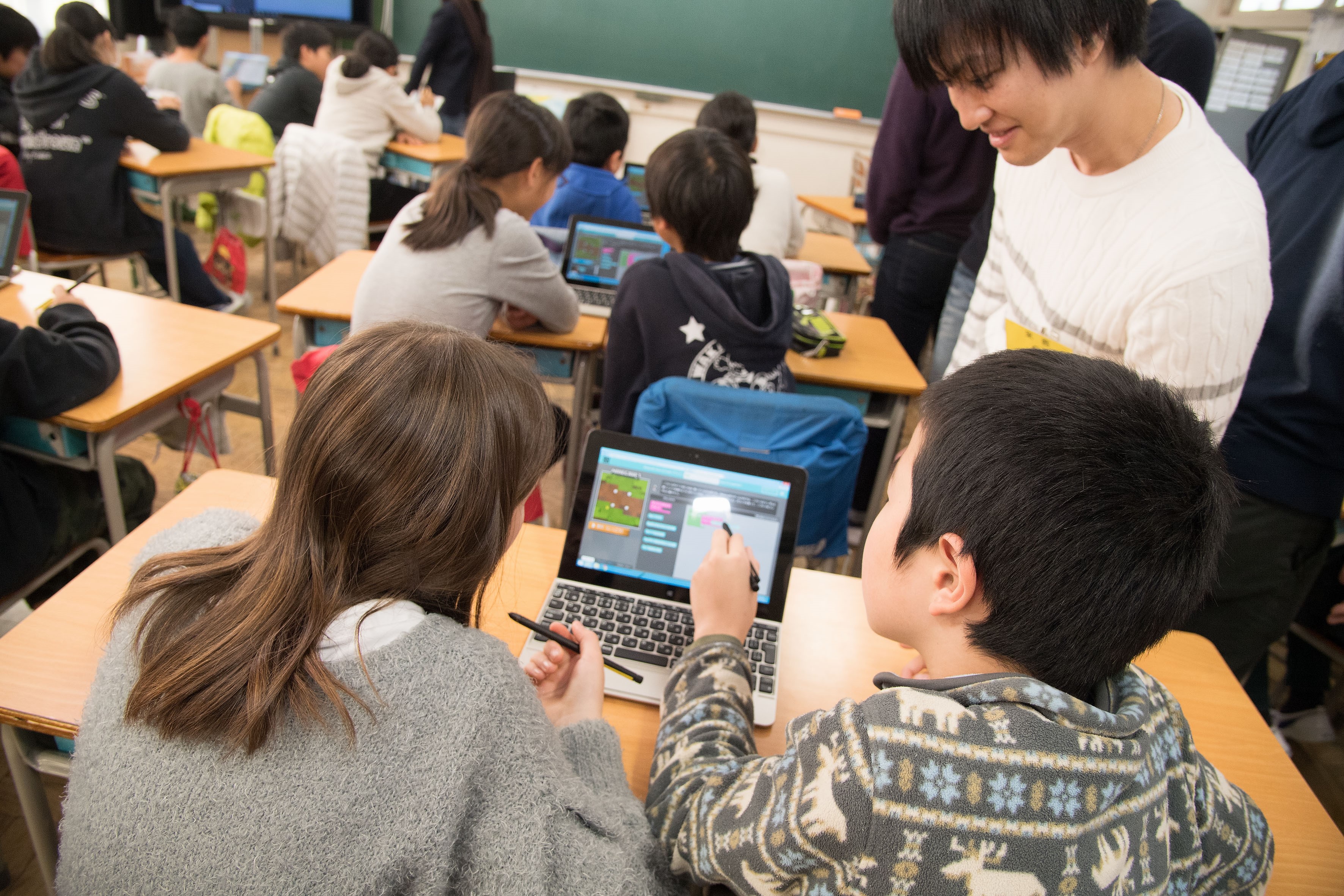
Paving the future with technology: Employee volunteers build a “societal ecosystem” in Japan
Giving back to the next generation through the love of computer programming
Yuka Matsubara feels energized by the creativity of children. Having worked at Microsoft Japan since 2015, Matsubara is one of the many employees at the company actively engaged in volunteer work. She gives coding lessons at elementary schools – along with other places – and uses material designed to teach programming to school-aged children.
Her exceptional volunteering encapsulates Microsoft’s major philanthropic pillar of empowering society through the effective use of technology. As it becomes a growing force in our daily lives, making technology easily available has become an important social mission.
To help achieve that goal, Microsoft gets involved in the community through employee engagement and support for nonprofits. Microsoft provides cloud solutions that nonprofits can use for their daily work, while also sending its employees as volunteers to train nonprofits on how to use this technology.
Teaming up to promote technology
In education, computer programming is set to become a compulsory subject in Japanese schools by 2020. However, work needs to be first done to improve the IT skills of teachers, especially those tasked with educating children on computer science. Microsoft’s technology experts, like Matsubara, are well placed to work with teaching staff to bring more digital experiences to schools.

“We want to take on this challenge together,” Matsubara says. “So if there’s anything you don’t understand, don’t struggle on your own and let me know. If you finish early, please help others around you.”
Matsubara’s enthusiasm reverberates in the classroom of elementary school sixth graders as she helps spark their interest in programming.
The programming class features learning materials – such as the Minecraft Hour of Code tutorial – allowing children to build programs to control the movement of creatures, like sheep and zombies, and to drop and pick up items such as jewels and vegetables. To increase the fun, sounds can be added to each movement, creating a world of endless possibilities. The students sometimes drop diamonds on the creatures as this is accompanied by groaning sounds.

The creativity and spontaneity of the students inspire Matsubara, whose expertise in computer coding originated from her study in agricultural informatics. In her pursuit of increasing farming efficiencies, she collected large amounts of data to better understand how to improve the work of farmers. While doing this, she harnessed invaluable programming skills.
With an overwhelming desire for students to become technology savvy in a bid to expand their career options, Matsubara was compelled to volunteer and giving back has had a positive impact on her. “All the students have free and imaginative spirits,” she says. “I want to help them be able to put in action what they want to do or express, in whatever way that they want to.”
Nonprofits are important partners
Matsubara’s heartwarming experience is a snapshot of Microsoft Japan’s quest to help employees maintain ties with local communities and educational institutions. Microsoft Japan has formed partnerships with nonprofits in community building and educational support activities through its employees volunteering and by providing IT tools.
When Tokyo-based nonprofit Sodateage Net was preparing to offer an IT course for young people, Microsoft wanted to provide a long-term benefit to this nonprofit. Instead of sending their employees to teach the course, Microsoft trained the staff at Sodateage Net to empower them to become teachers and provide learning on a long-term basis to young people.
“Through collaboration, we want to continuously support nonprofit activities that have a structural impact on society,” says Megumi Kusumoto of Microsoft Philanthropies Japan.
Building a societal ecosystem, in which employees share their experience and skills, is also about creating a framework for volunteers to engage with local communities in the long-term.
“We want our employee volunteers to use their professional skills to give back to society,” says Kusumoto.
Much like Matsubara does to the delight of her enthusiastic students.
Discover how nonprofits increase their impact with cloud solutions by visiting https://www.microsoft.com/en-us/nonprofits
To read more about Microsoft Philanthropies’ work to build a future for everyone in Asia, click here.













